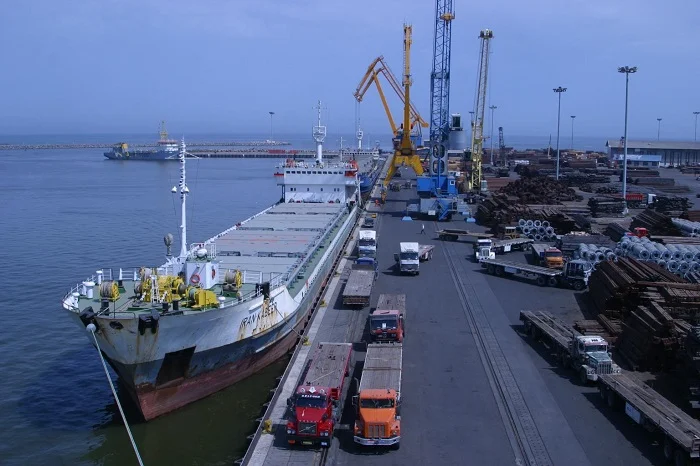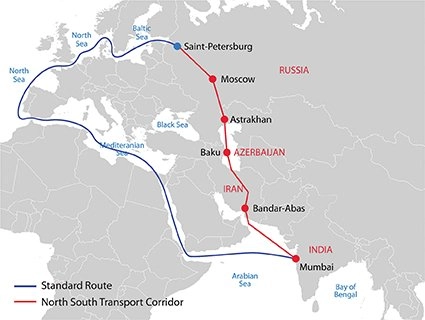

Chabahar Port in Iran has provided a more economical and stable route for landlocked countries of the Central Asian region to reach India and the global market (Image courtesy: Ministry of Transportation of Uzbekistan)
Russia has promised to eliminate legal and logistical hurdles preventing the International North-South Transport Corridor (INSTC) from becoming the main transport route of Eurasia in the future.
The large-scale 7,200 km-long multimodal trade corridor, which will start from Mumbai with nodes in West Asia, Central Asia, Caucasia and Russia, would eventually link the far-west Russian city of Saint Petersburg to the ports of Iran and India.
Several countries have acknowledged at the ongoing four-day Saint Petersburg International Economic Forum that while INSTC is interesting for foreign partners, there are several obstacles that remain for multimodal transportation, especially through road.
This includes outdated infrastructure at checkpoints besides tax and administrative barriers.


Insisting that transportation by road remains of great importance for ensuring trade along the North-South corridor, Russia’s Minister of Transport Vitaly Savelyev revealed that last year 5.2 million tonnes were transported by the road along the ITC, which is expected to increase to 5.5 million tonnes this year and 6.5 million tonnes by 2030.
“We envisage measures to eliminate bottlenecks in the North-South corridor. First of all, this concerns infrastructural restrictions. There are 16 checkpoints at the ITC, of which six are automobile checkpoints on the borders with Azerbaijan, Georgia and Kazakhstan,” said Savelyev at the Saint Petersburg International Economic Forum.
Sergey Ivanov, Special Representative of the President of Russia for environmental protection, ecology and transport, also acknowledged that there are as many as 40 infrastructure restrictions, tax and administrative problems that need to be worked out for the cargo to go in seamless order through the intercontinental corridor.
Iran’s Minister of Transport and Urban Development Mehrdad Bazrpash, who said that other countries are also “showing interest” in joining the corridor, made six specific proposals to achieve the desired goals
It included the participation of investors from the Russian side, including cargo owners, transport and logistics companies, in the completion and development projects of the southern ports of Iran on the shores of the Persian Gulf and the Sea of Oman.
Bazrpash called for the development of smart and digital technologies in transportation and transit relations between the two countries with an emphasis on cargo monitoring systems, and integrated use of electronic documents of international transportation, including electronic beams.
Tehran said that pursuing the agreements between Iran and Russia, especially the completion of the North-South corridor chain, is one of the most important goals of Bazrpash’s visit to Saint Petersburg.
India has been pushing extensively for the utilization of New Delhi-backed Chabahar port in Iran, and its inclusion in the INSTC framework for improving the land-locked Central Asian region’s connectivity with the outside world.
However, the lack of regular shipping lines between Russia and Iran as well as between Iran and India impedes the full-scale launch of the INSTC.
It was agreed during the first meeting of the India-Central Asia Joint Working Group (JWG) on Chabahar Port held in Mumbai in April that connectivity requires the active participation of the private sector.
Also Read: Chabahar, SCO and BRICS — India and Iran work on deepening ties ahead of key summits and visits
Over the last ten years, India’s global footprint has expanded thereby ensuring India’s voice resonates…
The Indian government has launched Operation Sindhu to evacuate Indian nationals from Iran in view…
Amid the evolving situation in West Asia, Indian and Israeli Defence officials spoke to each…
Croatian Prime Minister Andrej Plenkovic praised India's growing global leadership, citing its bold and inclusive…
Prime Minister Narendra Modi's maiden visit to Croatia marks a significant milestone in the India-Croatia…
Prime Minister Narendra Modi interacted with members of the Indian diaspora here on Wednesday as…